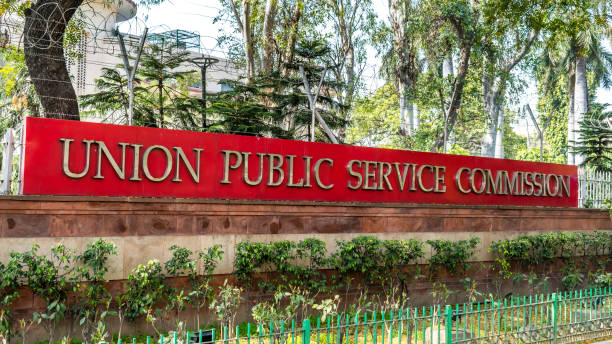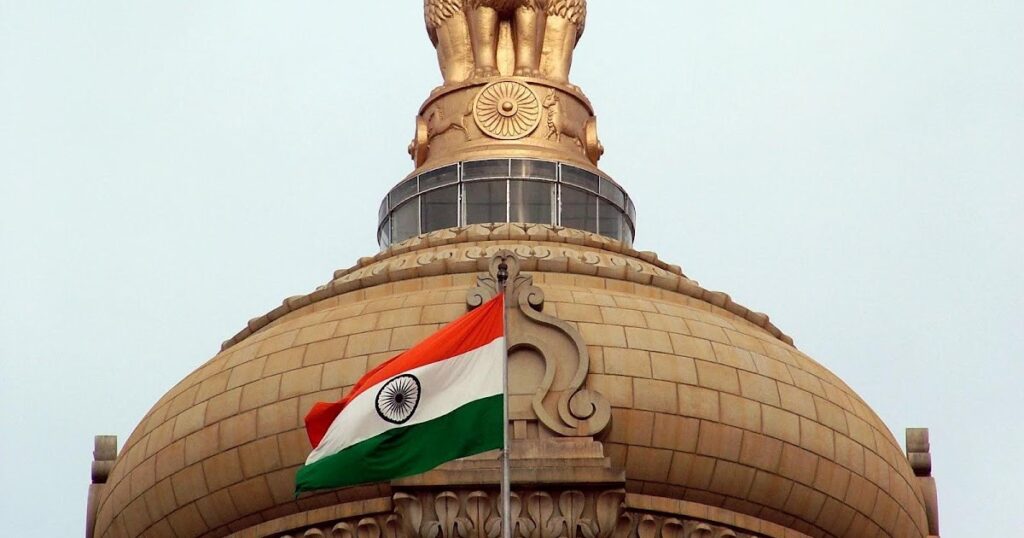INTRODUCTION:
The UPSC Economics syllabus encompasses microeconomics, macroeconomics, Indian economy, international economics, and development issues. It includes topics like demand and supply, national income accounting, fiscal and monetary policies, trade, and social sector initiatives. Understanding economic theories, policies, and their practical applications is essential for aspirants. The syllabus aims to evaluate candidates’ comprehension of economic principles and their ability to analyze socio-economic issues within the Indian and global contexts.

The UPSC (Union Public Service Commission) syllabus for Economics is vast and covers various aspects of microeconomics, macroeconomics, Indian economy, international economics, and economic development. Here’s an overview of the UPSC Economics syllabus:
Paper-I: Microeconomics
- Theory of Consumer Demand: Utility analysis, indifference curve analysis, demand theories, elasticity of demand.
- Theory of Production and Costs: Production function, laws of returns, cost curves, factor pricing.
- Theory of Firm: Perfect competition, monopoly, monopolistic competition, oligopoly.
- Factor Pricing: Marginal productivity theory, distribution theories, rent, wage theories, interest theories, profit theories.
- Market Structure: Pricing and output determination under different market structures.
- Welfare Economics: Pareto optimality, social welfare function, public goods, externalities, market failure.
- General Equilibrium: Partial and general equilibrium analysis.
Paper-II: Macroeconomics
- National Income Accounting: Concepts, methods, and measures of national income, GDP, GNP, NDP, NNP, and related aggregates.
- Determination of Income and Employment: Classical and Keynesian approaches, consumption and investment functions, aggregate demand and supply.
- Money and Banking: Functions of money, theories of money supply, central banking system, monetary policy tools, commercial banking, money market instruments.
- Inflation and Deflation: Causes, effects, measures to control inflation, Phillips curve.
- Fiscal Policy: Objectives, components, fiscal deficit, public debt management, fiscal reforms.
- Monetary Policy: Objectives, instruments, effectiveness, credit control measures, RBI’s monetary policy.
- Economic Growth and Development: Theories of growth, factors influencing growth, Human Development Index (HDI), sustainable development, inclusive growth.
- International Trade and Finance: Balance of payments, exchange rate determination, WTO, IMF, World Bank, trade policies, capital flows, foreign exchange markets.
Paper-III: Indian Economy
- Indian Economy – A Profile: Growth and development, structural changes, planning, economic reforms, economic policies, poverty, unemployment, inequality.
- Sectoral Composition of Output and Employment: Agriculture, industry, services sector, infrastructure, employment trends.
- Rural and Urban Economies: Rural development programs, urbanization, urban policies, slum development.
- Industry and Infrastructure: Industrial policies, SEZs, MSMEs, industrial clusters, infrastructure development, PPP model.
- Banking and Financial Market: Reforms in banking sector, financial inclusion, capital market reforms, regulatory bodies.
- Insurance and Pension Schemes: Regulatory framework, IRDAI, PFRDA, schemes for social security.
- Tax Structure: Direct and indirect taxes, GST, tax reforms, fiscal federalism.
- External Sector: Foreign trade policies, EXIM Bank, FDI, FII, foreign exchange reserves.
- Social Sector Initiatives: Education, health, poverty alleviation programs, rural development schemes, sustainable development goals (SDGs).
- Environment and Sustainable Development: Environmental policies, conservation strategies, climate change, green economy.
Paper-IV: Economics Development and Issues
- Development Experience of India: Planning process, growth strategies, economic reforms, poverty alleviation programs.
- Agriculture and Food Management: Green Revolution, agricultural productivity, food security, agricultural marketing, price support policies.
- Industry and Services Sector: Industrial policies, industrial growth, role of services sector in the economy.
- Infrastructure: Energy, transportation, communication, urban infrastructure, digital infrastructure.
- Investment Models: Public and private investment, FDI, PPP, infrastructure financing.
- Employment: Employment trends, challenges, skill development, employment generation programs.
- Poverty and Unemployment: Measurement, causes, eradication strategies, social security schemes.
- Inclusive Growth and Issues Arising from it: Inequality, regional disparities, social inclusion, affirmative action policies.
- Government Budgeting: Budgetary process, fiscal deficit, revenue and capital expenditures, budgetary reforms.
- Role of International Institutions in Economic Development: World Bank, IMF, WTO, UNDP, UNCTAD, their role, programs, and initiatives.
Candidates preparing for the UPSC Economics exam should thoroughly study these topics, analyze current economic trends, and practice answer writing to excel in the examination.
Certainly! Here’s a continuation of the UPSC Economics syllabus breakdown:
Paper-IV: Economics Development and Issues (continued)
- Sustainable Development: Environmental sustainability, natural resource management, ecological balance.
- Social Sector Initiatives: Education, healthcare, sanitation, nutrition, gender equality, social welfare programs.
- Demographics and Human Development: Population trends, demographic dividend, aging population, human development index (HDI).
- Human Development: Education, health, gender issues, empowerment, social justice, inclusive policies.
- Globalization and its Impact: Economic integration, trade liberalization, global economic institutions, cultural impacts, challenges of globalization.
- Development Dynamics: Models of development, economic corridors, regional disparities, inclusive growth strategies.
- Challenges of Development: Corruption, governance issues, bureaucratic hurdles, political instability, social conflicts.
- Case Studies: Analyzing specific developmental issues, policy interventions, success stories, and failures.
- Economic Survey and Budget Analysis: Understanding the Economic Survey of India, Union Budget analysis, fiscal policies, economic indicators.
- Contemporary Economic Issues: Emerging trends, disruptive technologies, digital economy, social entrepreneurship, sustainable business models.
Candidates are advised to approach the UPSC Economics syllabus holistically, integrating theoretical knowledge with practical application and current affairs. Keeping abreast of economic developments, both nationally and internationally, is crucial for comprehending the dynamic nature of economic policies and issues.
Moreover, practicing critical analysis, developing problem-solving skills, and fostering a multidisciplinary understanding of economics will enhance candidates’ preparedness for the examination and equip them to address complex socio-economic challenges effectively.
In addition to studying the prescribed syllabus, candidates should cultivate analytical thinking, clarity of expression, and the ability to articulate coherent arguments in their answers. Emphasizing conceptual clarity, logical reasoning, and empirical evidence in responses can significantly enhance the quality and impact of their answers in the UPSC examination.
Paper-IV: Economics Development and Issues (continued)
- Regional Development and Planning: Regional disparities, backward regions, special economic zones (SEZs), regional planning strategies.
- Urbanization and Urban Development: Urbanization trends, urban planning, smart cities mission, urban governance, urban infrastructure.
- Rural Development: Rural infrastructure, rural employment programs, land reforms, agricultural marketing, rural-urban linkages.
- Tribal Development: Tribal welfare programs, land rights, cultural preservation, sustainable livelihoods for tribal communities.
- Disaster Management and Economic Resilience: Disaster preparedness, risk reduction strategies, economic implications of natural disasters.
- Technology and Innovation Policies: Technology adoption, innovation ecosystems, research and development (R&D) investments, technology transfer.
- Public-Private Partnership (PPP): Models of collaboration between government and private sector, infrastructure development, service delivery.
- Economic Reforms and Liberalization: Post-liberalization era, economic deregulation, privatization, role of the state in the economy.
- Trade Policies and Agreements: Bilateral and multilateral trade agreements, WTO negotiations, trade facilitation, trade liberalization.
- Economic Diplomacy: Role of diplomacy in economic relations, economic diplomacy strategies, trade promotion.
General Tips for UPSC Economics Preparation:
- Integrated Approach: Integrate concepts from various sections of the syllabus to understand the holistic picture of economic issues and policies.
- Analytical Skills: Develop analytical skills to critically evaluate economic theories, policies, and their implications.
- Interdisciplinary Knowledge: Explore interdisciplinary linkages between economics and other subjects like sociology, political science, geography, and environmental studies.
- Practice Mock Tests: Regularly practice mock tests and previous years’ question papers to familiarize yourself with the exam pattern and improve time management.
- Revision Strategy: Adopt a structured revision strategy to reinforce key concepts and retain information effectively.
- Current Affairs Updates: Stay updated with current economic developments, government policies, and global economic trends through newspapers, magazines, and online sources.
- Effective Writing Skills: Enhance your writing skills by practicing essay writing, precis writing, and answer structuring.
- Seek Guidance: Seek guidance from experienced mentors, subject matter experts, and fellow aspirants to clarify doubts and gain insights into complex topics.
- Stay Motivated: Maintain a positive attitude, stay motivated, and persevere through the challenges of UPSC preparation.
By following these strategies and leveraging resources effectively, candidates can enhance their preparedness and maximize their performance in the UPSC Economics examination. Consistent effort, strategic planning, and a deep understanding of economic principles are key to success in this highly competitive exam.
CONCLUSION:
In conclusion, the UPSC Economics syllabus is a comprehensive framework that examines various aspects of economic theory and practice. It challenges candidates to understand the intricacies of microeconomics, macroeconomics, Indian economy, international economics, and development issues. Success in the UPSC exam requires not only a deep understanding of economic concepts but also the ability to critically analyze real-world economic scenarios and propose effective solutions to address socio-economic challenges.

For Detailed Information ; CLICK HERE
For the 2024 UPSC Calendar; CLICK HERE